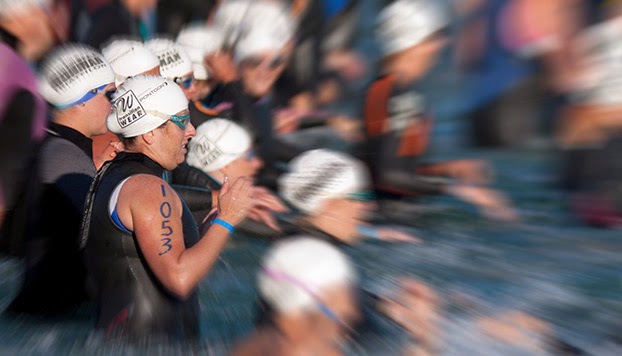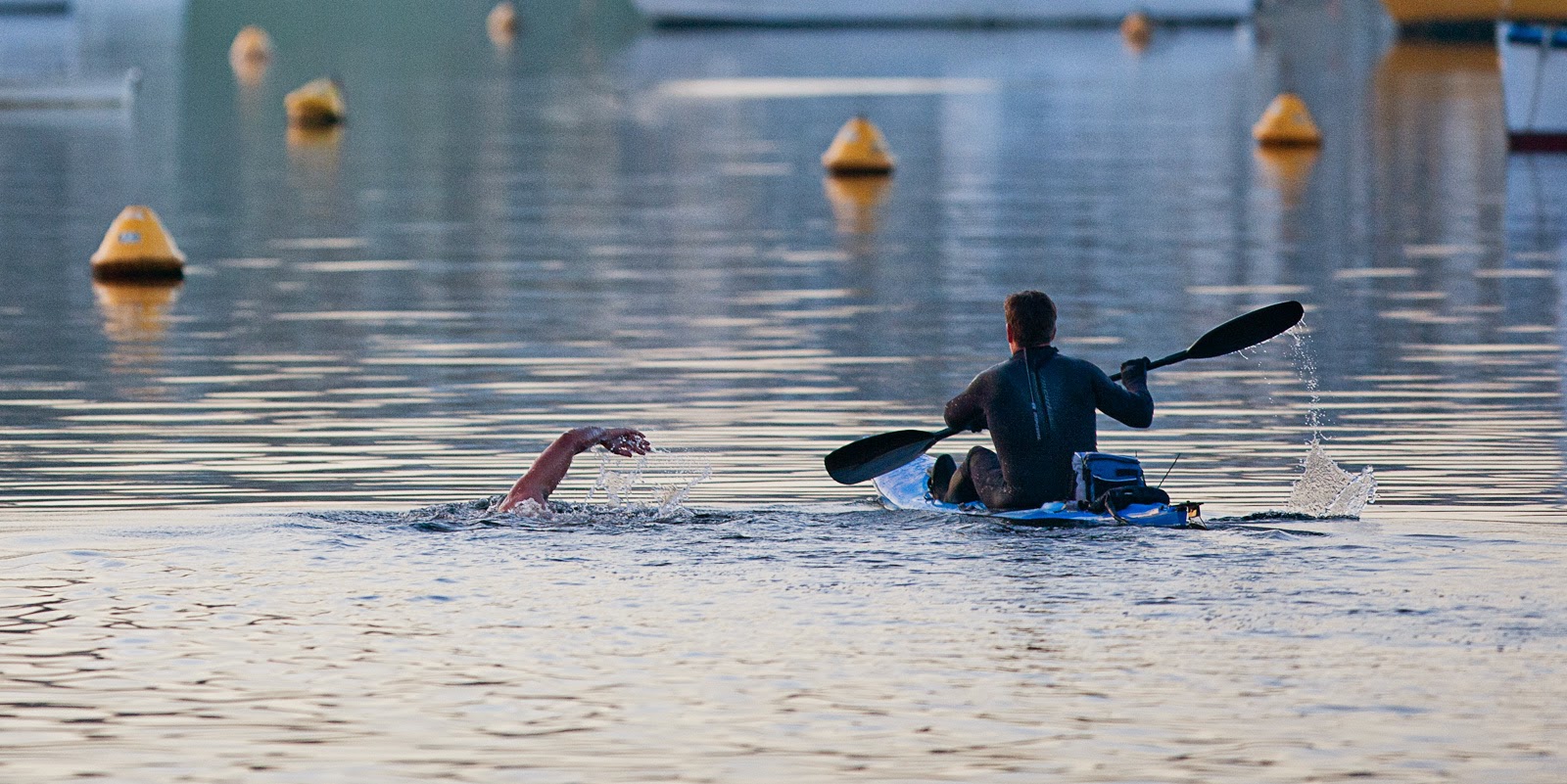(c/o Swim Smooth)
Almost every swimmer, no matter how experienced, has some level of anxiety when swimming in open water.
We estimate that for around 50% of swimmers, anxiety is a significant barrier to their performance in open water as it causes them to lose focus on swimming straight, miss drafting opportunities and causes them to start out too quickly (making their breathing ragged and so exacerbating their anxiety further).
For perhaps another 5-10% of swimmers, their fear is such that it risks ruining their entire race through a panic attack or even pulling out before the race from feeling like they won’t cope.
A lot o f swimmers describe this as ‘not liking open water swimming’ or as ‘being afraid’ of it. But that’s suggesting you have a general fear of everything about it, which is almost certainly not true. Instead there’s going to be specific things, or perhaps one single specific thing, that sets off your anxiety.
Here’s some classic ‘triggers’:
• Murky water
• Deep clear water (perhaps giving you a feeling of vertigo)
• Cold water
• Claustrophobia from the restriction of a wetsuit
• Claustrophobia from others swimming close to you
• Reeds, bull-rushes and other plants brushing against you
• A feeling of being tossed around
• Disorientation / losing your sense of direction
• The thought of marine wildlife coming close to you
That’s not an exhaustive list but should give some good food for thought to examine your own fears.
Once you have clearly identifi ed what sets off your anxiety then you need to devise a cunning plan (Baldrick) for overcoming it. Normally this involves deliberately encountering your fear in training in a controlled way so that you gradually and progressively overcome it.
 Head Coach Paul Newsome: A while back I was coaching a swimmer who swam quite well in open water but struggled in races when she was in close proximity to other swimmers as she had a great fear of being splashed in the face. In training we went for several open water swims together with myself swimming alongsid e her. The plan was for me to deliberately splash her face a little bit from time to time as we swam along, which we treated as a bit of a game. She coped pretty well, so we progressively increased the level of splashing more and more! When next in a proper race scenario, she simply recalled the game we’d played many times over in the ocean and knowing she could now cope, it brought smile of confidence to her face rather than a frown of panic.
Head Coach Paul Newsome: A while back I was coaching a swimmer who swam quite well in open water but struggled in races when she was in close proximity to other swimmers as she had a great fear of being splashed in the face. In training we went for several open water swims together with myself swimming alongsid e her. The plan was for me to deliberately splash her face a little bit from time to time as we swam along, which we treated as a bit of a game. She coped pretty well, so we progressively increased the level of splashing more and more! When next in a proper race scenario, she simply recalled the game we’d played many times over in the ocean and knowing she could now cope, it brought smile of confidence to her face rather than a frown of panic.
You can go a long way to overcome these fears by continually practising open water skills in the pool (all year round). Get your own lane and swim with friends deliberately in close proximity to each other to get used to the feeling. You’ll get a bump or two and perhaps swallow a little water but this is all good practise for race day! In a similar vein, try SS Coach Steve Casson’s SOAP exercise which is especially great for beginners: www.feelforthewater.com/2013/06/use-soap-to-improve-your-swimming.html
If you feel unbalanced or unstable in open water then a great strategy to employ is swimming with a little more punch and rhythm. This actually increases your stability as you encounter waves and chop, you’ll instantly feel a lot more comfortable by doing so. This is particularly relevant if you have a gentle stroke with a slow turnover (classically Bambinos and Overgliders).
 |
| Despite winning the Manhattan Island Marathon Swim last year, Paul still gets anxious in open water like anyone else. |
Paul: I was (and to some extent still am) a little phobic of open water swimming, it’s the deepness of the water that triggers me off, this is despite having now swum in some of the deepest, darkest oceans on the planet! As a junior this prevented me getting into triathlon sooner as my imagination ran wild with all the possible scenarios that might occur! I still get a little anxious from time to time but confronting th is fear when learning how to scuba dive in Thailand 13 years ago really helped. Whenever anxiety levels rise, I simply focus on calming my breathing down with the mantra “bubble-bubble-breathe” repetitively running through my head.
If you are travelling to a major race (e.g. a championships or an Ironman) which has conditions you can’t replicate locally, it is well worth getting there a few days early to swim regularly on the course in the build up. Getting out on the course with some friends swimming close to you is a great way to get used to race conditions before the race itself.
Developing a strategy like this seems a very obvio us thing to do but very few athletes take the time or have the discipline to do it. It is tempting to avoid our fears but by seeking out a venue where you are likely to encounter your particularly trigger you will gradually overcome it. Having of a coach or friend in the water with you (or on a kayak) will give you valuable support and help you push through the fear and out the other side.
Overcoming a fear is rarely a pleasurable experience but by doing so you will start to unlock the door to great open water swimming. You can do it!
Swim Smooth!


